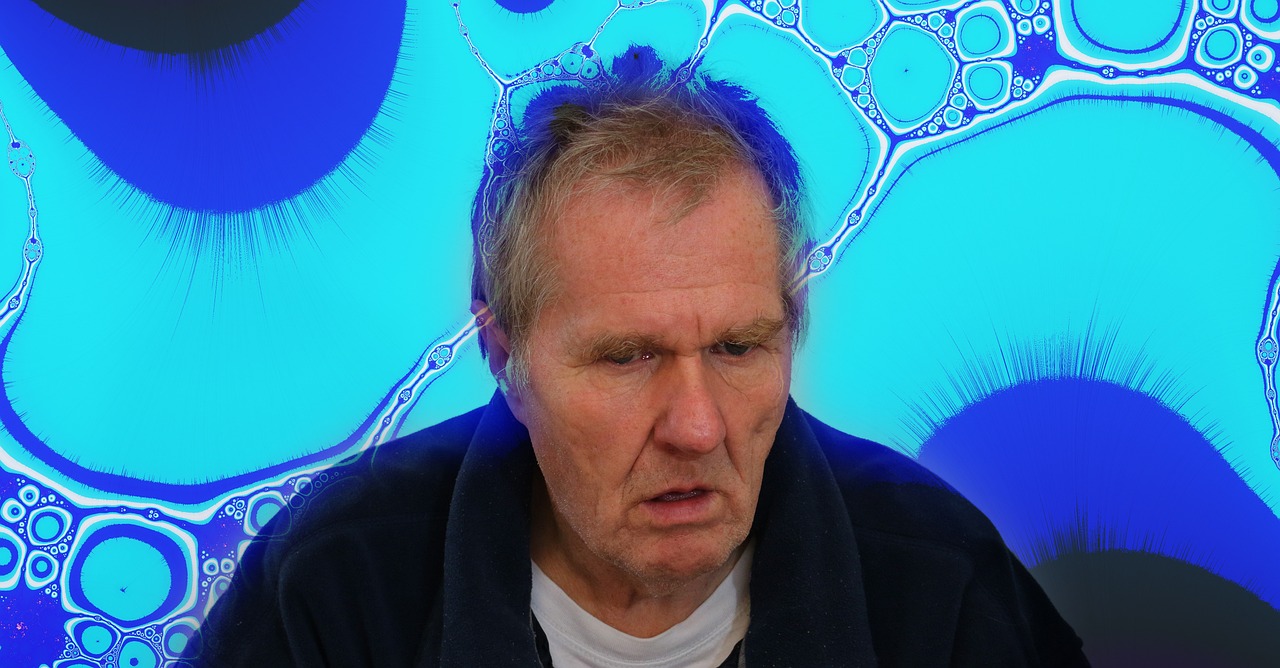- (248)952-8187
- info@findcarez.com
- 8519 PERRY RD.,# 233 ATLAS, MI 48411
Which Areas of the Brain and Body Are Affected First by Dementia?

Which Areas of the Brain and Body Are Affected First by Dementia?
Dementia is a term that’s often thrown around, but what exactly is it?
And how does it affect the body? For those living with dementia and their
caregivers, understanding how this condition impacts both the mind and the body
is crucial. In this article, we’ll explore where dementia symptoms first
appear, how the disease progresses, and what you can do to help manage its
effects.
I. Introduction
Dementia is a condition that affects millions of people worldwide. It’s
not a single disease but a collection of symptoms that lead to the decline in
cognitive functions such as memory, thinking, reasoning, and judgment. What’s
particularly challenging about dementia is that its symptoms can vary widely,
not only in how they present but also in which part of the body they affect
first.
In this article, we’ll take a closer look at how dementia starts in the
brain and how the symptoms spread throughout the body. Understanding where
these symptoms begin can help in early detection and lead to better care
options for those affected.
II. What is Dementia?
Dementia is a broad term used to describe a decline in cognitive
abilities, and it is usually caused by damage to the brain. It affects a
person's ability to remember, think, and make decisions. The most common form
of dementia is Alzheimer’s disease, but there are other types, including
vascular dementia, Lewy body dementia, and frontotemporal
dementia.
While dementia affects the brain, its symptoms don’t stay confined to the
head. As the brain deteriorates, it can disrupt both mental and physical
functions, leading to changes in behavior, movement, speech, and even bodily
control.
Dementia is progressive, meaning the symptoms get worse over time, and
the brain’s ability to function declines, often affecting multiple areas of
life.
III. How Dementia Affects the Brain
To understand where dementia symptoms begin, it's important to know a bit
about the brain’s structure and the specific areas that are most vulnerable to
dementia-related damage. The brain is made up of several regions, each
responsible for different functions:
- Hippocampus: This part of
the brain helps with memory formation. When it starts to shrink or
degenerate, people may begin to forget recent events or conversations—one
of the earliest signs of dementia.
- Frontal Lobe: Responsible
for decision-making, problem-solving, behavior control, and regulating
emotions, the frontal lobe’s damage often leads to changes in personality
and behavior. People may become more impulsive, irritable, or socially
withdrawn.
- Parietal Lobe: The parietal
lobe controls spatial awareness and coordination. Damage here can affect
the ability to recognize objects or get lost in familiar places, as well
as problems with balance or fine motor skills.
- Occipital Lobe: This part of
the brain processes visual information. Damage to the occipital lobe can
lead to vision problems, such as difficulty recognizing faces or objects
and even visual hallucinations in certain forms of dementia.
- Temporal Lobe: The temporal
lobes play a key role in language and emotional regulation. When damaged,
they can cause language difficulties, trouble understanding speech, and
emotional disturbances.
As these brain areas suffer from damage over time, it’s not just the mind
that is affected; the body also begins to show signs of dementia, with the
impact spreading across different systems.
IV. Early Signs: Cognitive and
Behavioral Symptoms
The first symptoms of dementia often appear in the mind, leading to
noticeable cognitive and behavioral changes. The brain’s deterioration impacts
various regions, and as a result, the symptoms can show up in different ways:
- Memory Loss
(Hippocampus): One of the earliest and most common signs of dementia is
forgetfulness. People may forget recent events, conversations, or where
they placed everyday items, like keys or glasses.
- Confusion and
Disorientation (Hippocampus, Frontal Lobe): Dementia
often causes people to become confused about where they are, what time it
is, or even who they are with. As the brain struggles to process
information, individuals may have trouble recognizing familiar places and
faces.
- Language
Problems (Temporal Lobe): Difficulty finding the right
words, repeating themselves, or struggling to understand others' speech
can all be early indicators. People with dementia may also have difficulty
following conversations or may stop speaking altogether.
- Behavioral
Changes (Frontal Lobe): As the frontal lobe is
affected, personality and behavior may change. Individuals might become
more impulsive, easily irritated, or socially withdrawn. They may also
display a lack of concern for personal hygiene or exhibit inappropriate
behaviors in social settings.
V. Physical Symptoms: Where Dementia
Affects the Body
As dementia progresses, its effects become more physically noticeable.
Different areas of the brain control various motor functions, and as these
areas deteriorate, physical changes begin to show up in the body:
- Motor and
Coordination Issues (Parietal Lobe and Cerebellum): Dementia can
affect coordination and balance, leading to difficulty walking, standing,
or even sitting up straight. People may also struggle with fine motor
skills, such as buttoning a shirt or feeding themselves.
- Vision Problems
(Occipital Lobe): The occipital lobe helps process visual information, so when it’s
damaged, individuals may have difficulty recognizing faces or objects.
Visual hallucinations can also occur, particularly in conditions like Lewy
body dementia.
- Swallowing and
Eating Problems (Brainstem): As dementia progresses,
individuals may have trouble swallowing, which can lead to choking or
aspirating food. This problem becomes more common in the later stages of
dementia, as the brainstem, responsible for regulating basic bodily
functions, starts to fail.
- Incontinence
and Loss of Control (Frontal Lobe and Brainstem): As damage to
the brain increases, people may lose control over bodily functions like
urination or defecation. The frontal lobe and brainstem play a role in
controlling these functions, so as these areas deteriorate, incontinence
can occur.
VI. Progression of Symptoms Throughout
the Body
As dementia advances, both cognitive and physical symptoms worsen. Memory
loss becomes more profound, and confusion may turn into an inability to
recognize loved ones or places. On the physical side, balance problems,
incontinence, and difficulty swallowing become more severe.
In the later stages of dementia, individuals often become entirely
dependent on caregivers for daily activities, from personal hygiene to eating
and moving. This is when the importance of caregiving support becomes most
critical.
VII. The Importance of Early Detection
Recognizing the early signs of dementia and understanding which areas of
the body are affected first can be key to diagnosis and early intervention.
Early detection offers a better chance to slow the disease’s progression with
medical treatments and lifestyle changes.
For caregivers, being able to identify changes in behavior or motor
skills early on can ensure that loved ones receive the right kind of care
sooner. If you notice signs of dementia in yourself or a family member, it’s
important to consult a healthcare professional for further evaluation.
VIII. Conclusion
In summary, dementia starts in the brain but spreads to various parts of
the body. Memory loss, confusion, and changes in behavior are often the first
signs, followed by physical symptoms like difficulty walking, vision problems,
and trouble swallowing. Understanding where dementia symptoms begin can help in
the early detection and management of the disease.
Support for both individuals with dementia and their caregivers is
essential in improving the quality of life. It’s important to stay informed and
raise awareness about dementia and its impact on the body.
IX. Call to Action
If you’re a caregiver or know someone who is experiencing early signs of
dementia, you don’t have to navigate this journey alone. Visit FindCarez.com
for resources and services that connect you with professional caregiving
support. Additionally, if you're looking for senior living options or need
assistance finding a facility, FindSeniorsLiving.com
offers a comprehensive database of living arrangements that can meet your loved
one’s needs.
By understanding dementia’s impact on both the mind and body, we can
provide better care, earlier interventions, and, ultimately, a better quality
of life for those affected. Share this article with others, and together, we
can raise awareness and support those living with dementia.



